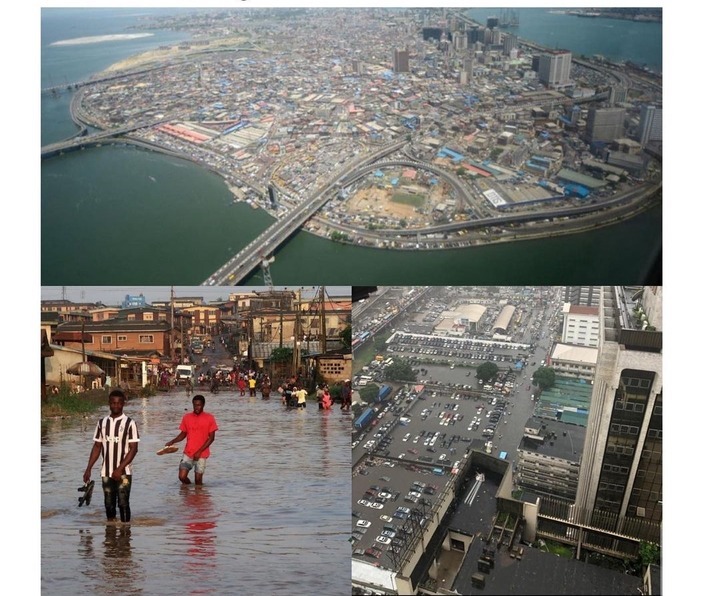
Lagos May Soon Become Uninhabitable- Expert
Experts have released a dooming report foretelling the fate of Lagos State as floods continue to ravage major parts of the city during the rainy season.
The report says Lagos with an estimated population of 24 million people, may become unfit to live in by 2100 as sea levels rise due to climate change.
The report also said the coastline of Lagos is quickly eroding, which makes the city vulnerable to flooding and that since scientists have predicted that global sea levels will rise more than 6 feet (2 meters) by the end of this century, Lagos, which is less than two meters above the sea, will greatly suffer from a sea-level rise of just 3 to 9 feet (about 1 to 3 meters)
The report published adds that such a situation “will have a catastrophic effect on human activities” in Lagos.
Read excerpts of the report below.
“Cars and houses submerged in water, commuters wading through buses knee-high in floods, and homeowners counting the cost of destroyed properties.
Residents of Nigeria, Africa’s most populous nation, are used to the yearly floods that engulf the coastal city from March to November. In mid-July, however, the major business district of Lagos Island experienced one of its worst floods in recent years.
Photos and videos posted to social media showed dozens of vehicles inundated with water after torrential rain. The floods paralyze economic activity, at an estimated cost of around $4 billion per year.
Home to more than 24 million people, Lagos, a low-lying city on Nigeria’s Atlantic coast, may become uninhabitable by the end of this century as sea levels rise due to climate change, scientific projections suggest.
The problem is exacerbated by “inadequate and poorly maintained drainage systems and uncontrolled urban growth,” among others, according to a study led by the Institute of Development Studies.
Nigeria’s hydrological agency NIHSA has predicted more catastrophic flooding in September, usually the peak of the rainy season.
Lagos is partly built on the mainland and has a string of islands. It is grappling with an eroding coastline that makes the city vulnerable to flooding, which Sand mining for construction is a major contributor to shoreline erosion in Lagos, environmental experts have said.

